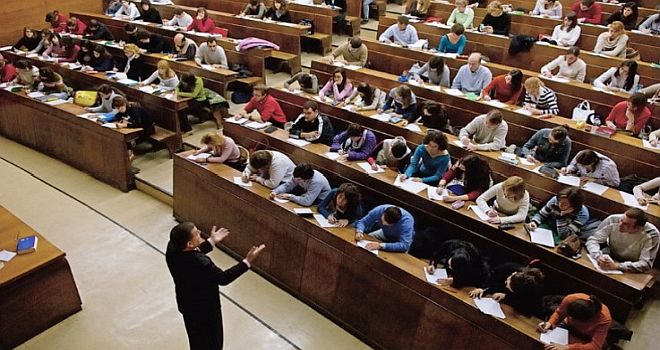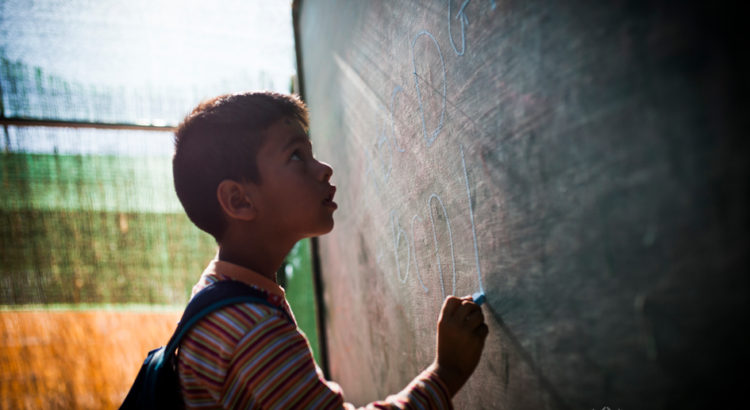Por: Red Iberoamericana de Docentes. 07/12/2016
La investigación beneficia a la enseñanza universitaria porque mejora su calidad, tal y como revela un estudio en el que ha participado la Universidad Complutense de Madrid. En una muestra con más de 600 docentes, los autores comprobaron cómo los profesores que investigan tienen mejor criterio y son más rigurosos a la hora de dar clases aunque, si investigan demasiado, la calidad docente empeora, al faltarles tiempo.
Una mayor producción investigadora está asociada con una mayor calidad docente. Es la principal conclusión de un estudio elaborado por la Universidad Complutense de Madrid (UCM) y la Universidad Jaume I (Castellón), en el que han participado 604 profesores universitarios entre 2002 y 2006.
“Hemos descubierto que los docentes que cuentan con resultados de investigación enseñan mejor que otros profesores con menos investigación”, destaca Teodosio Pérez Amaral, del departamento de Economía Cuantitativa de la UCM. De hecho, según el estudio, los que no investigan son cinco veces más propensos a ser los peores docentes.
Los profesores que no investigan son cinco veces más propensos a ser los peores docentes
Los participantes procedían de 25 departamentos de las áreas de humanidades, ciencias sociales, económicas, gestión, ciencias naturales e ingenierías de la Universidad Jaume I (UJI). El estudio, publicado en Applied Economics, incluyó 69 variables de fuentes oficiales para medir los índices de enseñanza, tareas administrativas e investigación de los docentes.
Uno de estos índices es Teachqual, con el que los estudiantes evaluaron la calidad de la enseñanza en una escala de 0 a 9. La investigación se cuantificó con Researchl, entre otros indicadores, que da un valor a la investigación publicada en función de la calidad de las revistas científicas en las que esta aparece.
El estudio revela que, de media, los profesores que investigan imparten un 21,5% más de clases que los que no lo hacen. Además, dos tercios de los docentes podrían mejorar su enseñanza si realizaran más investigación.
Investigar hasta un límite
Diferentes argumentos justifican este resultado. “Los investigadores tienen mejor criterio para elegir qué temas abordar en la docencia, y mayor acierto y rigor por los continuos filtros y controles a los que está sujeta su actividad científica”, afirma Nikolaos Georgantzis, del Laboratorio de Economía Experimental de la UJI y coautor del trabajo.
Dada su experiencia, estos profesores pueden dirigir tesis doctores con mayores garantías de éxito que los no investigadores y orientarlos académicamente o profesionalmente con mejor criterio.
El trabajo también revela cómo la investigación se puede volver en contra de la enseñanza cuando es excesiva, al consumir la mayor parte del tiempo y energía del docente. “Lo atribuimos a que, en algunos casos, la dedicación a la investigación puede ser tan intensa que puede dar lugar a que disminuya la calidad de la enseñanza”, alerta Aurora García Gallego, del mismo laboratorio de la UJI y coautora del trabajo.
La investigación se puede volver en contra de la enseñanza cuando es excesiva
Lo que también afecta a la excelencia educativa son las tareas administrativas, que restan tiempo al docente. No obstante, si su peso es elevado y el profesor recibe a cambio una disminución de la carga docente, el nivel de la enseñanza no empeora.
Por áreas, los profesores del departamento de Educación consiguieron los mejores resultados, y entre sexos fueron las mujeres las que registraron una docencia de más calidad. Elaborar libros y material multimedia también benefició a la enseñanza, pero no lo hicieron los cursos de mejora pedagógica en los que participaron los profesores.
El Decreto baja la calidad
El estudio refleja que el Real Decreto 14/2012 –de medidas urgentes de racionalización del gasto público en el ámbito educativo– redujo la calidad educativa 0,75 puntos sobre 10, al disminuir la carga docente de los investigadores consolidados pero aumentarla en la mayoría de los profesores.
“Abarata la docencia, al incrementar el número de horas de la mayor parte del profesorado”, alerta Joan Martín Montaner, investigador del Instituto de Economía Internacional de la UJI y coautor del trabajo.
Como conclusión, los autores proponen que el organismo evaluador del profesorado, la ANECA, incentive la calidad docente como hace con la investigación. “Se podría controlar con encuestas o con auditorías con profesores externos”, proponen.
Referencia bibliográfica:
García-Gallego, A; Georgantzis, N; Martin-Montaner, J y Perez-Amaral, T. “(How) Do research and administrative duties affect university professors’ teaching?” Applied Economics 47 (45), 2015. DOI: 10.1080/00036846.2015.1037438.
Fuente: http://redesib.formacionib.org/blog/los-profesores-universitarios-que-investigan-ensenan-mejor
Fotografía: cienciaxplora















 Users Today : 3
Users Today : 3 Total Users : 35461421
Total Users : 35461421 Views Today : 6
Views Today : 6 Total views : 3421923
Total views : 3421923